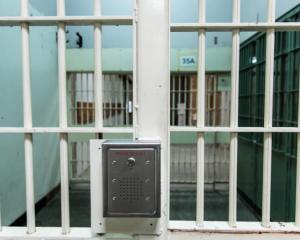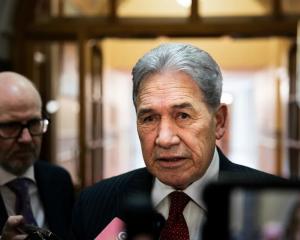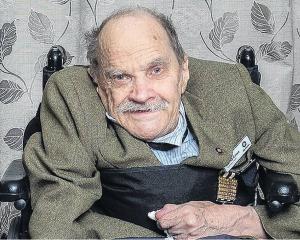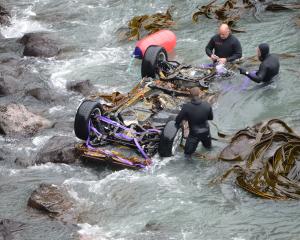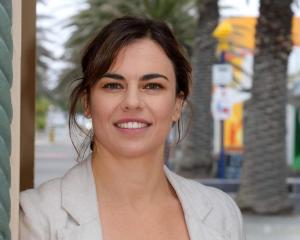
Mr Gordon received the news last week he had topped an approval poll of New Zealand’s mayors carried out by Curia Market Research for the Taxpayer’s Union between January 2023 and April this year.
He sees the result as ‘‘a reflection of the incredible community we have here in the Waimakariri District’’.
The poll result also reflects ‘‘the trust and confidence’’ in the Waimakariri District Council's ability to serve and represent the community’s best interests, he says.
‘‘Whether that is right here in the Waimakariri District, at a regional level or in Wellington advocating for our residents to ensure their best interests are at the forefront for decision makers.
‘‘We have a respected council along with excellent leadership from our chief executive officer Jeff Millward that filters down through all levels of our staff,’’ he says.
‘‘It is a great feeling for me as Mayor of the Waimakariri District and Chair of Local Government Zone 5, and a member of LGNZ (Local Government New Zealand) National Council, that people can see how much I love what I do.’’
However when Mr Gordon was first told the news he thought the phone caller was joking.
But now that his win has been confirmed, and he has had time to reflect on it, he is ‘‘very humbled’’ by the result of the poll.
‘‘It is great to know that so many people believe in the work we are doing together to make our district a great place to live, work, and thrive,’’ he says.
Mr Gordon loves his job, ‘‘which doesn’t really feel like work to me’’, and the Waimakariri community he lives in.
‘‘It is a privilege to be mayor and to have been fortunate to be part of our council for over 20 years both as a councillor and mayor for the last five years.’’
The first people Mr Gordon told about the poll result was his father Bruce and sister Charlotte.
‘‘They are really supportive of what I do and they were both really thrilled,’’ he said.
However, his cat Rupert, still hasn’t come to terms with the poll result.
‘‘He still thinks he is number one around here,’’ Mr Gordon said.
Meanwhile, Mr Gordon delivered a poignant, heartfelt speech at the Rangiora Anzac Day Memorial Service, which earned applause from the large crowd at the Rangiora War Memorial cenotaph.
He acknowledged Lily Anderson ‘‘a special young lady from Fernside’’, who joined him later to lay a wreath.
Mr Gordon told the Rangiora crowd, which was seven deep in places surrounding the cenotaph, that it was ‘‘truly a privilege to be able to commemorate this very special day'' in New Zealand’s history.
‘‘We remember all those who made the greatest sacrifice of all so that we can enjoy the freedoms we have today,’’ he said.
‘‘Each year I am reminded how war has shaped my own family.’’
He remembered his great grandfather who was a member of the North Canterbury Mounted Rifles and fought in WW I more than 100 years ago, and also his grandfather, ‘‘a prominent and dear figure in my life’’ who left behind his wife and parents in Kaiapoi.
‘‘That young man went on to spend four years in a prisoner of war camp starting in North Africa, then Italy and finally in Stalag camps in Austria.’’
‘‘I can only imagine the horrors he must have endured,’’ Mr Gordon said.
‘‘I am sure his very being was only sustained by the hope that he would one day return to this district and once again be reunited with his family.''
But that wasn’t to be.
He had been missing, presumed dead. On arriving home his sister greeted him in Lyttelton to tell him his wife had left him, and both his parents had died while he was away serving his country.
‘‘Because of this I know his return was more difficult, and although in those days it was very rarely discussed, those years had taken a terrible toll on his wellbeing,’’ Mr Gordon said.
‘‘It would be wonderful if I was standing here today and declaring that the sacrifices made by so many young men and women meant that never again would families have to deal with the complexities and catastrophes of war.
‘‘But war is still shaping our lives,’’ he said.
‘‘Devastation reigns in the Middle East between Israel and Hamas and we are still navigating the consequences of war in Europe following the Russian invasion of Ukraine.’’
Beyond that immediate loss of life and destruction of infrastructure, war left lasting scars on societies, Mr Gordon said.
He thanked organisations like the RSA which care for veterans and their families and ensure those who return from conflicts will always have a place they belong with people who understand what they have been through.
‘‘There wasn’t the support back in earlier conflicts that there is today,’’ he said.
‘‘It also was considered not appropriate to discuss as openly as we do today how we are feeling, and the very mention of mental health was a taboo.
‘‘I am pleased that we do live in a caring society where it is OK to talk about our struggles.’’
The devastation of war in Europe and the Middle East was a constant reminder to strive for a future where peace prevailed over violence and where the dignity and rights of all people were respected, Mr Gordon said.
‘‘The path to peace is long and challenging, requiring deep discussions, diplomacy, and a commitment to addressing the root causes of conflict.
‘‘It is not an easy road.’’
However, he was ‘‘filled with hope’’ by so many young faces attending the Rangiora service.
‘‘Generations of young people who have grown up on the stories of past sacrifices, who acknowledge all that lays before them because of all those that laid down their lives,’’ he said.
‘‘I thank you parents and grandparents for raising the next generations to continue to honour the legacy that is Anzac Day — to remember all those, especially from this district who made the ultimate sacrifice and those who returned home but still left a part of themselves on the battlefield.’’
Mr Gordon attended seven Anzac memorial services, including three on Anzac Day.


-By Shelley Topp



